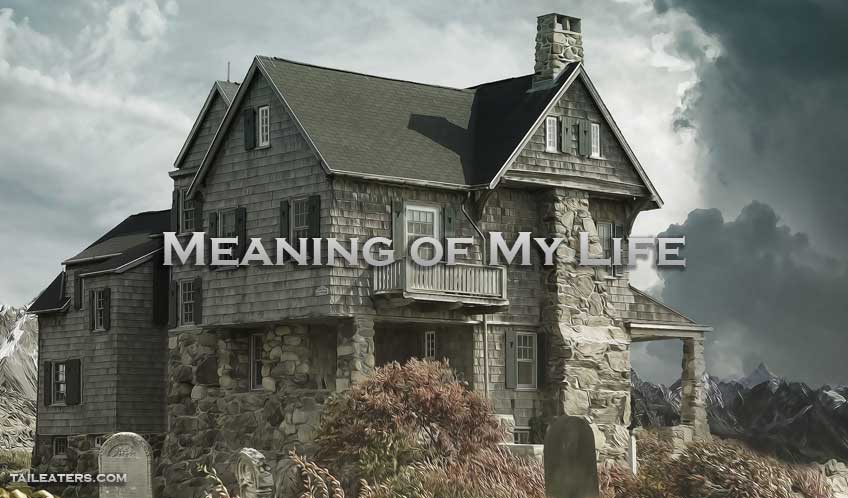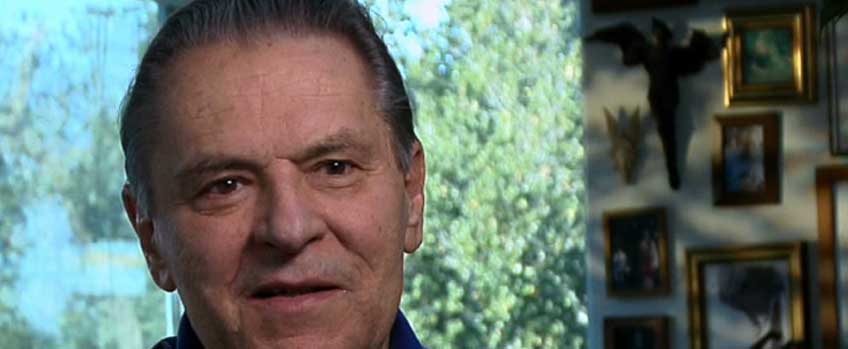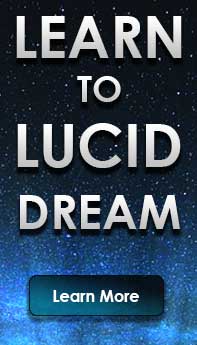
Meaning of My Life
My personal journey into adulthood
Many young people today face a dreadful and depressing fact that the story about their life is not what they imagined it to be. They find that in their story that happiness is not obtained through items and things. The American Dream that many of us were told was possible has now spread its narrative around the world and more and more people are realizing that it simply is impossible. Once realized that this is an dream, many people are facing an existential crisis, asking themselves what is life and are they willing to continue to live in the same way they have before, in an impossible dream. Something must change.
The American Dream, as well as any mythology that we tell each other, are not meant to be a reality, they are myths for that very reason. They provide us with an idea that we can excel in our lives and that things we do can make our lives better in the future. The myth is not meant to be taken literally as many of us have, but more a framework to live by. In my past, I also have fallen into this trap of believing the American Dream, and the result was my own crises where I became aware that life is a bit messier and complex than I thought before. Through time I have provided myself with my own life story and created my own mythology, and practice to live by which has provided me a more realistic view on reality and a way to live into the future.
In the story of my life, I have spent a great amount of time focusing on Jungian psychology as it applies to my life. The reason for this is that I have personally viewed Jung much like a father figure when it comes to providing useful knowledge for me to assimilate and use to improve my life, dive deeper into the dream world, and to overcome adversity while awake. Though Carl Jung’s psychological views have aged some with time, and I find some of his theories fractured, he still resonates with me well today as I am sure he did with many in his time.
Carl Jung and His Influence on My Life
Jung’s work is particularly essential in my life due to my focus on my personal dreams. Jung’s archetypes had played out in my dreams well before I even knew about his theories. I remember reading Jung’s description of the shadow and the merging with the shadow as an essential part of growing as a person, and then recalled my experiences with sleep paralysis and overcoming that experience, the similarities were shocking. This direct connection to my experience made me into a “believer” of Jung’s perspective on dreaming and sleep. Diving deeper into Jung’s work into the animus and anima and how they affect our sleep as well as our waking life, I also closely related. I found that in my life I often felt like two forces pulled me through life, not in opposition but more in forwarding angled vectors swaying me slightly as I changed as a person. These forces seemed to align with the idea that I primarily related to the animus or female aspect of myself as I am male. Typically, this viewpoint seemed logically wrong as male masculinity expression is higher in men, however, the idea that I seek attention from my mother primarily as I grew up, seemed to promote that Jung’s theory is correct. Additionally, in the dream world, in an overwhelmingly high occurrence, my guides are primarily female and express those traits. If a male aspect does appear, which is not as often, those experiences are often aggressive or fearful.
Some areas that I find Jung’s work contrary to my personal experience also parallels with his archetypal aspects of the self. Personally, when I experience dream characters in my more in-depth or more extreme consciousness experiences (out of body experiences or use of entheogens), these archetypes become very real. In Jung’s work he asserted that archetypes never showed themselves, that they were hidden behind dream imagery or conscious thought; however, I believe that these archetypes take on very physical (in the dream world) independently aware bodies that possibly exist without the need of a conscious person. I also believe that Jung believed in this possibility as he alluded to the idea of the collective unconscious later in his work. It would also make sense that Jung would not present archetypes as real collective unconscious aspects of humanity (or beyond) as this idea would surely ostracize himself from academia. With the more recent release of Jung’s Red book, we can guess that Jung may have had some more profound alternative views to consciousness than earlier perceived.
Not only have I found it essential to see how far consciousness extends, I think it’s also important to understand where it starts. When we look at Margaret Washburn’s work on consciousness we see a different perspective.
Nature and Mankind
Today in the West we find a perceived separation between mankind and nature, that man is separate or more aware than nature. What we forget is that consciousness and awareness came from nature and that we are in fact part of nature. I would like to propose that this separation implied by the foundation of Judeo Christian values on the basic idea that man was created by God, not by a natural force. Washburn regardless of her personal views provided us a look into the minds of animals with the basic idea that we can find answers to our mind in understanding theirs. Personally, I find this an important concept that all people need to adapt to the future if we as people are going to fully understand not only consciousness but also our place in the world. Using Washburn’s views and applying them into my own life has allowed me to view nature and my place in it in a more holistic way, where my relationship to nature is much more connected than I had perceived before.
With a reconnection to nature comes the idea of reconnecting to the past and the traditions that come with that. Shamanism came into my mind after my use of entheogens as many of these past cultures used plants, and techniques to change their consciousness. In these experiences that they had, they would have profound insights into reality that would allow them to be better hunters, connect to their tribe and community on more profound intimate ways, and also heal the sick and suffering. I found this mysterious, and for many years I wondered how I could to learn how to access this knowledge. What I realized is that instead of looking to the past and copying what one culture made that made sense to them and their time, I could create new traditions that made sense to my story and my life as it moved forward.
Using profoundly altered states that came with the Out of Body Experience, I was able to have very shamanic experiences that applied to my psyche. These experiences are represented by traveling to the underworld or even being brought up to higher planes, being dismembered by cutting and burning away my old body to be reassembled and made new. Many fear-based themes came into play which directly resembled many shadow elements that Jung talked about, but overcoming these fears expressed a form of Rite of Passage that has opened me up into a new realization of my place in the world.
Additional to these new experiences that are continually affecting and changing my life, a shamanistic perspective of the past has allowed me to see that my life has always had ties to shamanistic features. In the case of spiritual animals and guides, I often have seen snakes in my visions and dreams which have devoured me over and over again. Additional to the snake I have often seen what shamans describe as doctors, but in reality, their descriptions resemble the grey like aliens we see in popular media today. These aliens often act as spiritual guides in dreams to teach me powerful traditions that I consciously have not experienced before.
Though I am not sure where these experiences reside (in the collective unconscious, the subconsciousness, another reality, etc.) the experiences still exist as I have had them. They also have made huge impacts on how I perceive my world around me for better or worse. I have learned an honest truth in all of this, that much of my confusion I have found over my life has been generated by comparing my experiences to others.
Hameed Ali (A.H. Almaas) has provided a new way for me to approach my life in a new way which relates closely to his conception of the diamond approach. I have started to realize that my story about my life is my own and that spiritual practices and realizations are personal feats that one must create themselves.
Cookie Cutter Religions
I think that this idea completely discredits the notion that spirituality is a cookie cutter one fits all product that religious doctrine can emulate throughout all humanity. In this way, I think that Jesus said it best when he described the human body as the temple for God, not the church representing the temple. His teaching made it possible for individual people to create their own practice that was intended only for God and themselves. This idea seems to be overlooked in modern Christianity as many people feel the need to attend church and learn how to worship their God from others examples, never really creating their own deep spiritual practice and in result never fully understanding their own spirituality. I don’t only think that Christianity has fallen into this trap, I think all religious practices, including shamanistic traditions, are not to be copied and implemented if we are to have a personal relationship with our spiritual side. Each person should put in their effort to create their own practice.
With each spiritual practice across all cultures, there are essential frameworks that also play out. Almaas saw these similarities in his work and named them essential aspects. They are essential because they are important to everyone and at their core is the feeling, sensation, and aspect of what they are. For my life, I most relate to the essential aspect of truth as I have always searched for truth in my own life and how truth plays a part in the reality that I perceive. This makes me feel free, light, and joyful whenever I seek the truth. The essential aspects are the essence of what makes us feel free and create our specifically tailored but ever-changing spiritual practice. Truth does this for me.
I do not believe that spiritual practice comes out of nothing. I think that the foundation provided by other belief systems allows a person to create their own. I believe that discussion, in-depth studies, and practice of religious systems are fundamental to forming one’s own beliefs. These things provide a framework for people to critically evaluate what works for them and essentially create their own religious practice. Stanislav Grof describes this in his Three Realms of the Psyche which can be applied to all belief systems.
- Belief in your level of knowledge- Understanding that you have the knowledge of something and that you understand enough to make choices that benefit you.
- Belief in your ability to learn- You have the ability to learn new concepts and understand them.
- Belief in your self-worth- Your choices and decisions are important and will make a positive impact on your life.
We can take this same system and apply it to religious belief systems but not first without learning how to think critically for ourselves, learning about other people’s practices, and finally making choices and following through with those choices (a religious practice). I think that Grof has greatly expressed the importance of these belief systems when it comes to forming our own spiritual way.
Life as a Metaphor
I think that mostly when I look back on my life and my relationship with spirituality, I can best describe it in the metaphor of building a house, where the house represents my spiritual practice, and the building of the house represents my ability to assimilate knowledge in a way that makes sense to me:
- The Foundation- I first set up a foundation to build my house. My foundation at the time was set on Christianity based beliefs as that’s what I was raised as by my parents.
- The Walls – I started to build the walls of my house with my Christian views, and over time I found that though there was a lot of great lessons in the Christian philosophies, that many of those beliefs changed and I no longer aligned with them. I broke down the walls and, in its place, I put the more mystical practices of shamanism and eastern philosophies.
- The Roof- For the roof of my house sits scientific research and philosophy. It acts as an additional foundation while protecting me from the storms of thoughts. Because of the roof, I can take a clear look at what lies in my house.
- The Items Inside- All of the things in my house that make up the majority of the content are my experiences, other people’s experiences, and what I learn as I reflect and discuss ideas as time goes on. Sometimes things break inside my house, and I throw them out, sometimes things age and they build character, but everything inside that makes up the majority of my house is always changing. To others, it may look like chaos, but to me, everything has its place and meaning.
- The Aging House- Houses age and sometimes the foundation needs repairing, or a wall torn out. This is where I replace parts of my foundation, walls, and roof with different ideas and concepts that come to me over time. These new ideas become part of the support system that is needed to keep my mind, body, and soul in good working order.
Continue to Change
As I age, mature, grow and learn, I become someone dramatically different but I also bring with me a lot of views and ideas that I had at the start. I have changed over time but in some ways, I am still the same. It is great to take the time to reflect on that and find peace with the past as I continue forward to build my future. My future I do not know what it will be, but I do know it will contain a spiritual practice that is my own in which I will try to understand more about myself and the wonderful world around me.
Lee Adams is a Ph.D. candidate in Jungian Psychology and Archetypal Studies at Pacifica Graduate Institute and host of Cosmic Echo, a lucid dreaming podcast, and creator of taileaters.com, an online community of lucid dreamers and psychonauts. Lee has been actively researching, practicing, and teaching lucid dreaming for over twenty years.
Join the Discussion
Want to discuss more about this topic and much more? Join our discussion group online and start exploring your consciousness with others like yourself.







Recent Comments